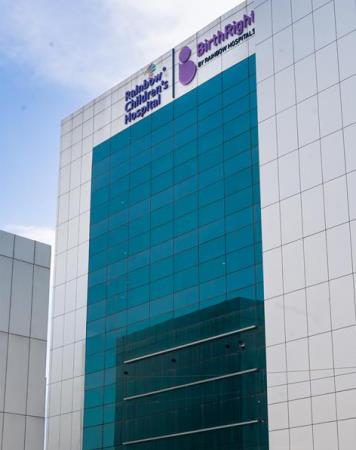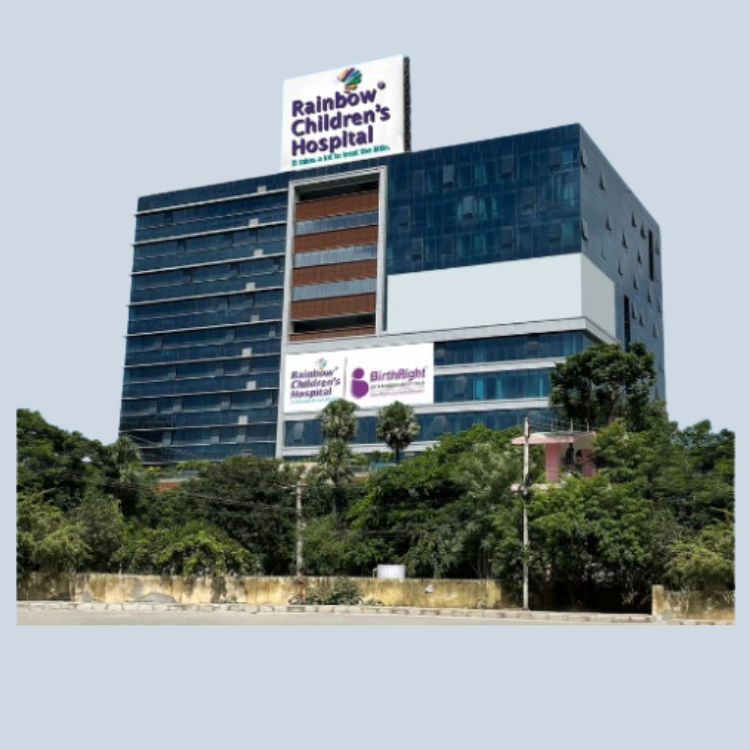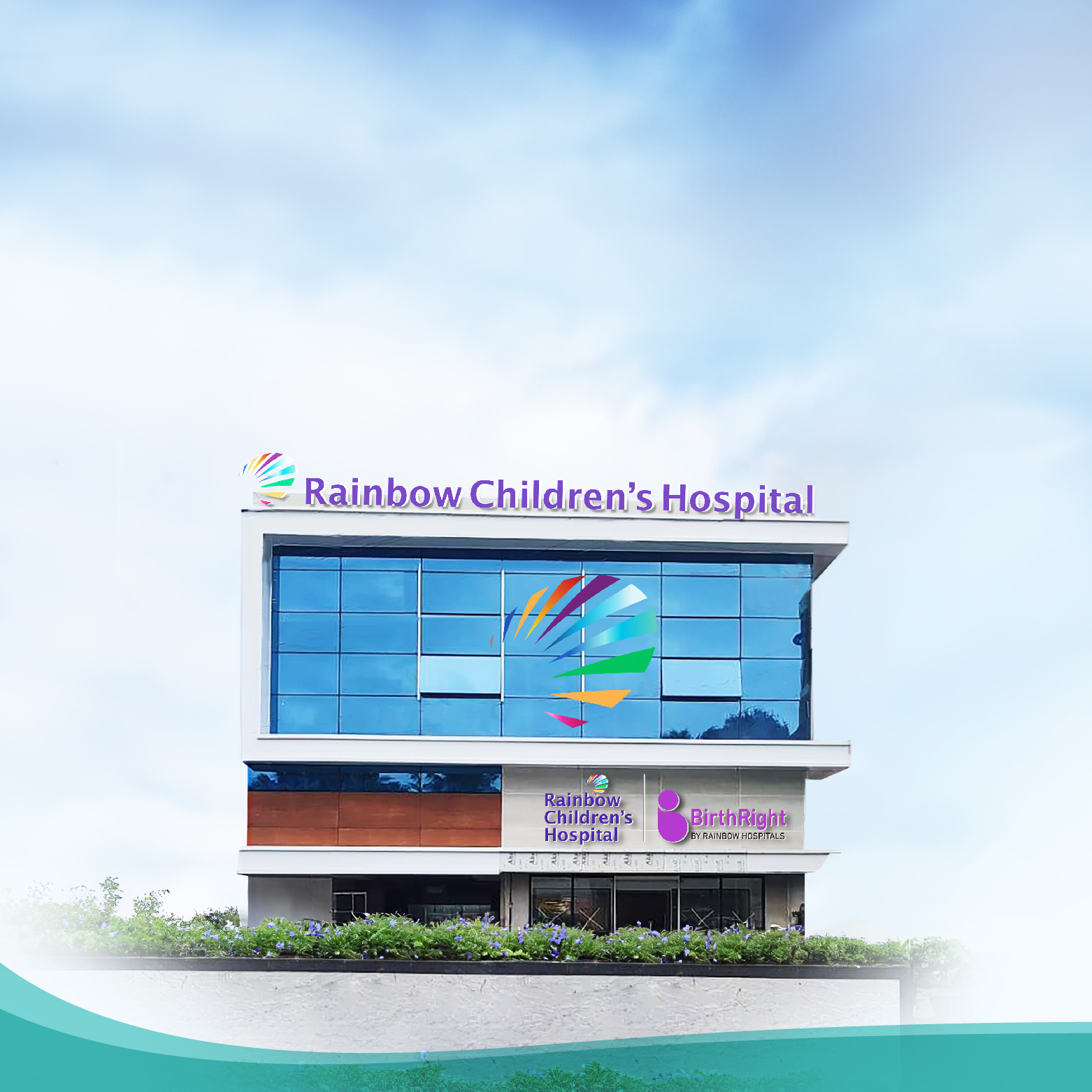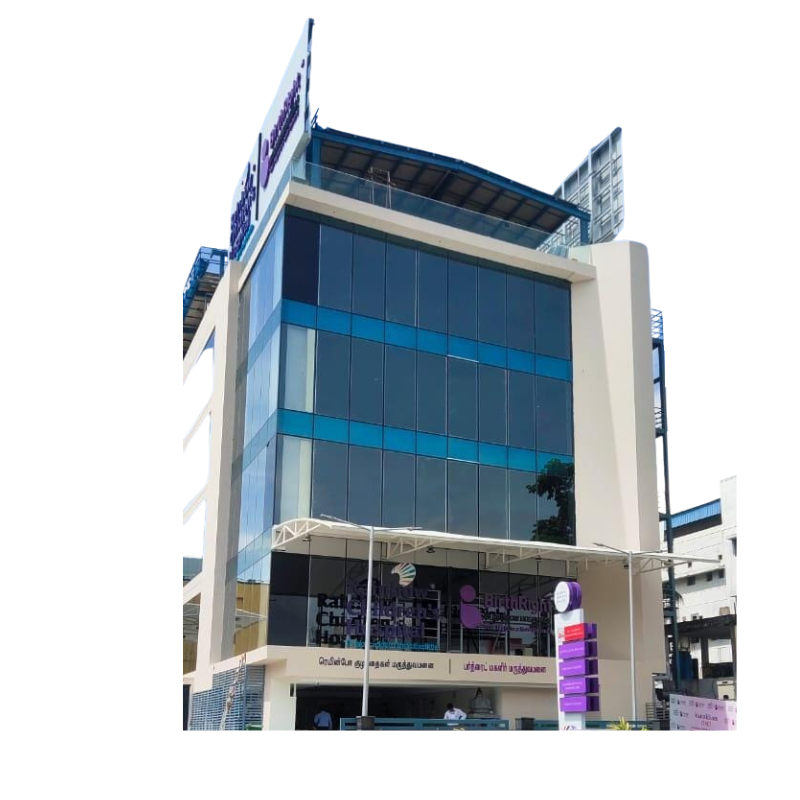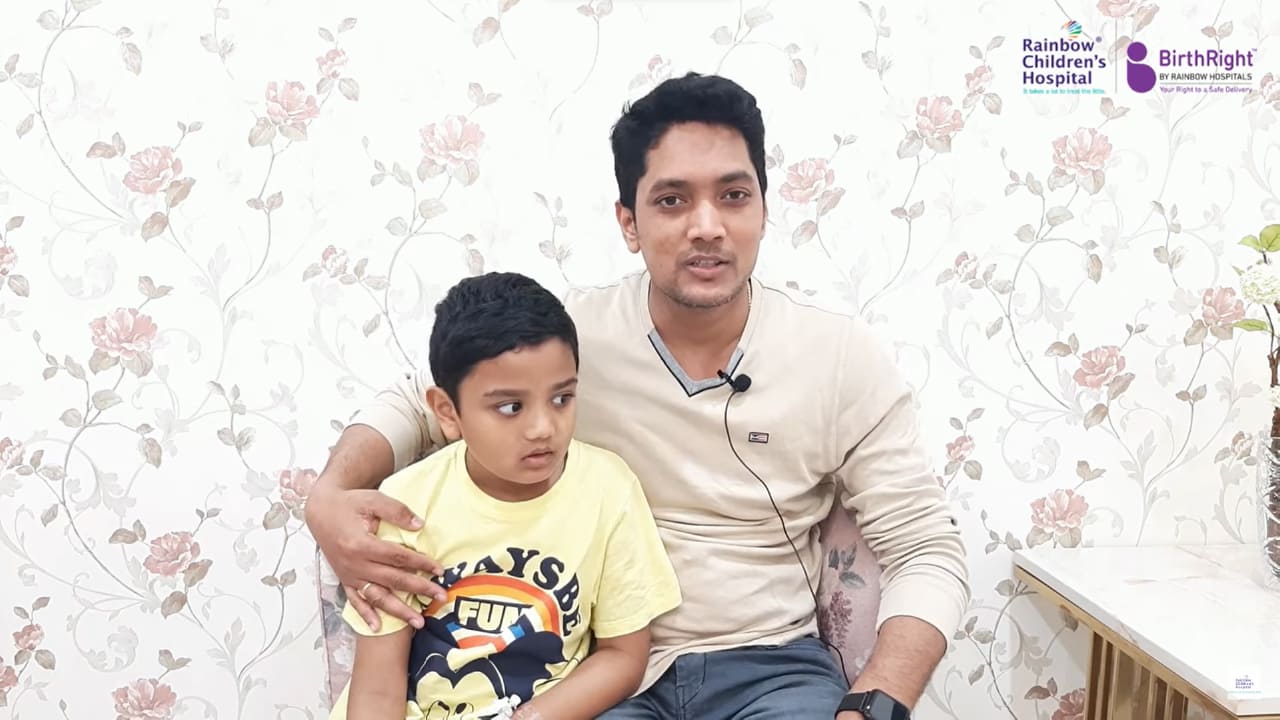Seamless support from diagnosis to post treatment care
Pediatric Neurosurgery
The pediatric neurosurgery team at Rainbow Children’s Hospital provides a specialized treatment and care for conditions associated with brain and spine in young patients ranging from neonates to 18 years old. We have a highly skilled and multidisciplinary team of pediatric neurosurgeons, pediatric neurologists, pediatric anesthesiologists, intervention neurologists, and specialists from the pediatric intensive care unit (PICU) and neonatal intensive care unit (NICU) to provide expert care for children with complex neurological conditions.
At Rainbow Children’s Hospital, we ensure exhaustive evaluation, accurate diagnosis and world-class surgical and post-surgical care for disorders affecting the skull, brain, spine, spinal cord, and nerves (both spinal and peripheral). Our specialists treat all types of conditions, including pediatric brain and spine tumors, head injuries & trauma, hydrocephalus, arterio-venous malformations (AVMs), and epilepsy, using both minimally invasive and endoscopic techniques. They are also well-equipped to perform emergency procedures round-the-clock and traditional open surgery in case of complex brain and spinal conditions. Supported by state-of-the-art facilities, including modular operating theaters, advanced image guidance system and cutting-edge tools such as Neuro Endoscopy, Neuronavigation, and Neuromonitoring, etc., the dedicated team is committed to providing the best possible neurosurgical care that's at par with international standards.
Pediatric Neurosurgical Services at Rainbow Children’s Hospital
Our state-of-the-art Pediatric Neurosurgery Department deals with diagnosis, treatment and management of a wide spectrum of neurosurgical conditions in newborns, infants, children and adolescents. Our hospital is well equipped with specialized facilities to treat various disorders - right from neurodegenerative conditions and epilepsy to pediatric strokes. Some of the pediatric conditions and disorders treated at Rainbow Children’s Hospital includes:
Brachial Plexus Nerve Surgery: The brachial plexus is a bundle of nerves that originates in the neck region of the spinal cord and creates a network that connects to the nerves in the shoulder, arm and hand. It controls function and sensation in the wrist, arms, and hands. Injuries to this network can result in partial or complete loss of function and feeling, leading to significant disability and numbness in the arm and hand.
Read More
Cerebrovascular Surgery: Cerebrovascular surgery in children is a specialized surgery performed to evaluate and treat all forms of vascular conditions that affect blood vessels supplying blood to the brain and spinal cord. These conditions can be life-threatening or severely disabling if not timely treated. The treatment helps in addressing problems related to restrictive blood flow and ruptured blood vessels and clots. It helps to treat vascular conditions of the brain or spine, including aneurysms, hemorrhages, arteriovenous malformations (AVMs), carotid artery stenosis, strokes and vascular brain tumors.
Read More
Epilepsy Surgery: Epilepsy surgery is a treatment option for drug-resistant epilepsy, which occurs when anti-seizure medicines fail to control seizures even after taking the appropriate doses. The goal of surgery is to either remove the area of the brain where seizures occur or interrupt the seizure pathways. This helps to reduce or completely eliminate seizure frequency or their severity. It's not the first line of treatment and is usually recommended when the source of the seizures that has been identified can be safely treated without interfering with important brain functions such as speech or movement. Not every epilepsy patient needs surgery; thus, a careful evaluation which includes a series of tests is required.
Read More
Hydrocephalus: Hydrocephalus is a condition caused by the excessive buildup of cerebrospinal fluid (CSF) in the skull. This increases the pressure inside the brain. CSF’s primary function is to cushion and protect the brain, but when an excess of it is accumulated, it can damage brain tissue and cause developmental, physical, and cognitive disorders.
Read More
Minimally Invasive and Endoscopic Neurosurgery: Minimally invasive and endoscopic neurosurgery techniques are designed to treat complex neurological conditions through smaller incisions, less disruption to surrounding tissues, and with the help of advanced lighted tubes called endoscopes. Endoscopes serve as small microscopes, magnifying critical anatomical structures so the surgeon can easily see the various diseased areas requiring repair, removal, or replacement.
Read More
Scoliosis and Deformity Correction: Scoliosis is a medical condition characterized by an abnormal curving of the spine, which can appear in the thoracic, lumbar, or both regions. Most cases of scoliosis of the lumbar spine are mild, but some curves worsen as a child grows. Severe scoliosis can be disabling, to an extent. In extreme cases, the spinal curve can reduce the amount of space within the chest, thereby making it difficult for the lungs to function properly.
Read More
Spasticity and Dystonia Surgery: Spasticity and dystonia are similar, in the sense the two neurological conditions resemble each other and are manifestations of neurological dysfunction but they are distinctly different.
Read More
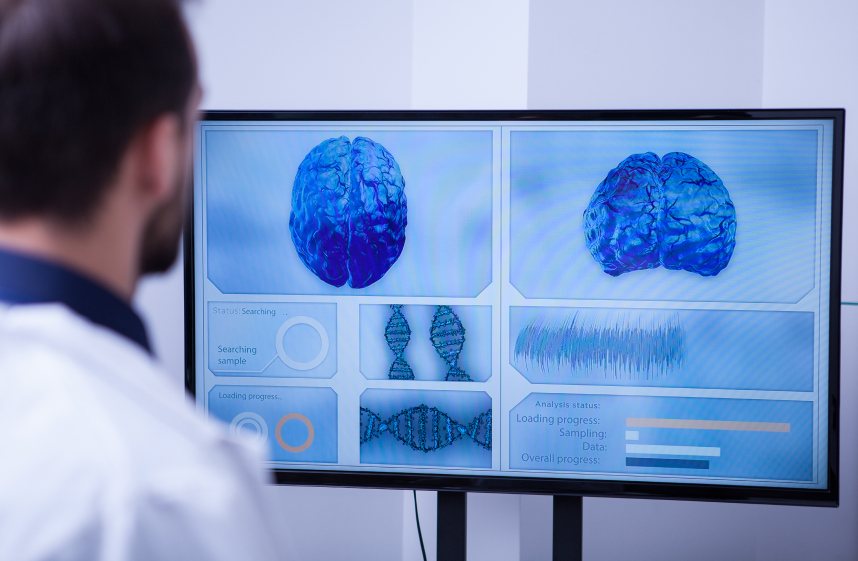
Find a Doctor
Expertise you can trust, Meet our esteemed doctors who bring exceptional knowledge, compassion, and innovation to provide top-notch care for your health and well-being.
Our Hospitals and ClinicsOur Hospitals and Clinics
Rainbow Children's Hospital stands as a testament to the hospital's continual pursuit of excellence and innovation, providing specialized care for women and children.
Request a Call back
Tap to Fill FormRequest a Call back
Blogs
Discover our most recent health articles provided by our reliable experts.
What Are People Saying About Us
Embark on a journey of inspiration and hope with our patient success stories, complemented by informative videos from our dedicated doctors.
Quick Links
- Best Pediatric Neurosurgeons in Hyderabad
- Best Pediatric Neurosurgeon In Bangalore
- Pediatric Neurosurgeon in Delhi
- Pediatric Neurosurgeons in Chennai
- Best Pediatric Neurosurgeon in Vijayawada
- Best Pediatric Neurosurgeon in Vizag
- Best Pediatric Neurosurgeon in Hyder Nagar
- Best Pediatric Neurosurgeon in Marathahalli
- Best Pediatric Neurosurgeons in Guindy
- Best Pediatric Neurosurgeons in Currency Nagar
- Best Pediatric Neurosureon in Banjarahills
- Top Pediatric Neurosurgeons in India
- Best Treatment for Spina Bifida in Children, Hyderabad
- Best Treatment for Spinal Cord Injury in Children, Hyderabad
- Best Treatment for Arachnoid Cysts in Children, Hyderabad
- Best Treatment for Chiari Malformation in Children, Hyderabad
- Best Treatment for Glioblastoma Multiforme in Children, Hyderabad
- Best Treatment for Intraventricular Hemorrhage in Children, Hyderabad
- Best Treatment for Deep Brain Stimulation in Children, Hyderabad
- Best Treatment for Oligodendroglioma in Children, Hyderabad
- Best Treatment for Pilocytic Astrocytoma in Children, Hyderabad
- Best Treatment for Skeletal Dysplasia in Children, Hyderabad
- Best Treatment for Laser Ablation in Children, Hyderabad
- Best Treatment for Radiosurgery in Children, Hyderabad
- Best Treatment for Tethered Spinal Cord in Children, Hyderabad
- Best Treatment for Cavernous Malformations in Children, Hyderabad
- Best Treatment for Dysembryoplastic Neuroepithelial Tumor in Children, Hyderabad
- Best Treatment for Selective Dorsal Rhizotomy in Children, Hyderabad
- Best Treatment for Pial Synangiosis in Children, Hyderabad
- Best Treatment for Metopic Synostosis Trigonocephaly in Children, Hyderabad
- Best Treatment for Primitive Neuroectodermal Tumors (PNET) in Children, Hyderabad
- Best Treatment for Vein of Galen Malformation (VOGM) in Children, Hyderabad
- Best Treatment for Intraoperative magnetic resonance imaging (iMRI) in Children, Hyderabad
- Best Treatment for Spina Bifida in Children, Bengaluru
- Best Treatment for Spinal Cord Injury in Children, Bengaluru
- Best Treatment for Arachnoid Cysts in Children, Bengaluru
- Best Treatment for Chiari Malformation in Children, Bengaluru
- Best Treatment for Glioblastoma Multiforme in Children, Bengaluru
- Best Treatment for Intraventricular Hemorrhage in Children, Bengaluru
- Best Treatment for Deep Brain Stimulation in Children, Bengaluru
- Best Treatment for Oligodendroglioma in Children, Bengaluru
- Best Treatment for Pilocytic Astrocytoma in Children, Bengaluru
- Best Treatment for Skeletal Dysplasia in Children, Bengaluru
- Best Treatment for Laser Ablation in Children, Bengaluru
- Best Treatment for Radiosurgery in Children, Bengaluru
- Best Treatment for Tethered Spinal Cord in Children, Bengaluru
- Best Treatment for Cavernous Malformations in Children, Bengaluru
- Best Treatment for Dysembryoplastic Neuroepithelial Tumor in Children, Bengaluru
- Best Treatment for Selective Dorsal Rhizotomy in Children, Bengaluru
- Best Treatment for Pial Synangiosis in Children, Bengaluru
- Best Treatment for Metopic Synostosis Trigonocephaly in Children, Bengaluru
- Best Treatment for Primitive Neuroectodermal Tumors (PNET) in Children, Bengaluru
- Best Treatment for Vein of Galen Malformation (VOGM) in Children, Bengaluru
- Best Treatment for Intraoperative magnetic resonance imaging (iMRI) in Children, Bengaluru
- Best Treatment for Spina Bifida in Children, Delhi
- Best Treatment for Spinal Cord Injury in Children, Delhi
- Best Treatment for Arachnoid Cysts in Children, Delhi
- Best Treatment for Chiari Malformation in Children, Delhi
- Best Treatment for Glioblastoma Multiforme in Children, Delhi
- Best Treatment for Intraventricular Hemorrhage in Children, Delhi
- Best Treatment for Deep Brain Stimulation in Children, Delhi
- Best Treatment for Oligodendroglioma in Children, Delhi
- Best Treatment for Pilocytic Astrocytoma in Children, Delhi
- Best Treatment for Skeletal Dysplasia in Children, Delhi
- Best Treatment for Laser Ablation in Children, Delhi
- Best Treatment for Radiosurgery in Children, Delhi
- Best Treatment for Tethered Spinal Cord in Children, Delhi
- Best Treatment for Cavernous Malformations in Children, Delhi
- Dysembryoplastic Neuroepithelial Tumor in Children, Delhi
- Selective Dorsal Rhizotomy in Children, Delhi
- Pial Synangiosis in Children, Delhi
- Metopic Synostosis Trigonocephaly in Children, Delhi
- Primitive Neuroectodermal Tumors (PNET) in Children, Delhi
- Vein of Galen Malformation (VOGM) in Children, Delhi
- Intraoperative magnetic resonance imaging (iMRI) in Children, Delhi
- Spina Bifida in Children, Chennai
- Spinal Cord Injury in Children, Chennai
- Arachnoid Cysts in Children, Chennai
- Chiari Malformation in Children, Chennai
- Glioblastoma Multiforme in Children, Chennai
- Intraventricular Hemorrhage in Children, Chennai
- Deep Brain Stimulation in Children, Chennai
- Oligodendroglioma in Children, Chennai
- Pilocytic Astrocytoma in Children, Chennai
- Skeletal Dysplasia in Children, Chennai
- Laser Ablation in Children, Chennai
- Radiosurgery in Children, Chennai
- Tethered Spinal Cord in Children, Chennai
- Cavernous Malformations in Children, Chennai
- Dysembryoplastic Neuroepithelial Tumor in Children, Chennai
- Selective Dorsal Rhizotomy in Children, Chennai
- Best Treatment for Pial Synangiosis in Children, Chennai
- Best Treatment for Metopic Synostosis Trigonocephaly in Children, Chennai
- Best Treatment for Primitive Neuroectodermal Tumors (PNET) in Children, Chennai
- Best Treatment for Vein of Galen Malformation (VOGM) in Children, Chennai
- Best Treatment for Intraoperative magnetic resonance imaging (iMRI) in Children, Chennai
- Best Treatment for Spina Bifida in Children, Vijayawada
- Best Treatment for Spinal Cord Injury in Children, Vijayawada
- Best Treatment for Arachnoid Cysts in Children, Vijayawada
- Best Treatment for Chiari Malformation in Children, Vijayawada
- Best Treatment for Glioblastoma Multiforme in Children, Vijayawada
- Best Treatment for Intraventricular Hemorrhage in Children, Vijayawada
- Best Treatment for Deep Brain Stimulation in Children, Vijayawada
- Best Treatment for Oligodendroglioma in Children, Vijayawada
- Best Treatment for Pilocytic Astrocytoma in Children, Vijayawada
- Best Treatment for Skeletal Dysplasia in Children, Vijayawada
- Best Treatment for Laser Ablation in Children, Vijayawada
- Best Treatment for Radiosurgery in Children, Vijayawada
- Best Treatment for Tethered Spinal Cord in Children, Vijayawada
- Cavernous Malformations in Children, Vijayawada
- Best Treatment for Dysembryoplastic Neuroepithelial Tumor in Children, Vijayawada
- Best Treatment for Selective Dorsal Rhizotomy in Children, Vijayawada
- Best Treatment for Pial Synangiosis in Children, Vijayawada
- Best Treatment for Metopic Synostosis Trigonocephaly in Children, Vijayawada
- Best Treatment for Primitive Neuroectodermal Tumors (PNET) in Children, Vijayawada
- Best Treatment for Vein of Galen Malformation (VOGM) in Children, Vijayawada
- Best Treatment for Intraoperative magnetic resonance imaging (iMRI) in Children, Vijayawada
- Best Treatment For Spina Bifida in Children, Vizag
- Best Treatment For Spinal Cord Injury in Children, Vizag
- Best Treatment For Arachnoid Cysts in Children, Vizag
- Best Treatment For Chiari Malformation in Children, Vizag
- Best Treatment For Glioblastoma Multiforme in Children, Vizag
- Best Treatment For Intraventricular Hemorrhage in Children, Vizag
- Best Treatment For Deep Brain Stimulation in Children, Vizag
- Best Treatment For Oligodendroglioma in Children, Vizag
- Best Treatment For Pilocytic Astrocytoma in Children, Vizag
- Best Treatment For Skeletal Dysplasia in Children, Vizag
- Best Treatment For Laser Ablation in Children, Vizag
- Best Pediatric Neurosurgery Doctors in Sarjapur Road, Bengaluru
- Best Pediatric Neurosurgery Doctors in Himayatnagar, Hyderabad
- Best Pediatric Neurosurgery Doctors in Anna Nagar, Chennai
- Best Neurologist Doctor near me in Chennai
- Best Neurologist Doctor near me in Hyderabad
- Top Neurosurgeons in Anna Nagar , Chennai - Rainbow Children's Hospital








